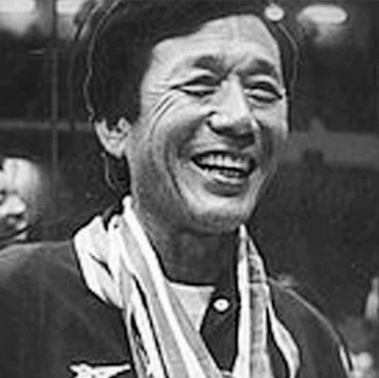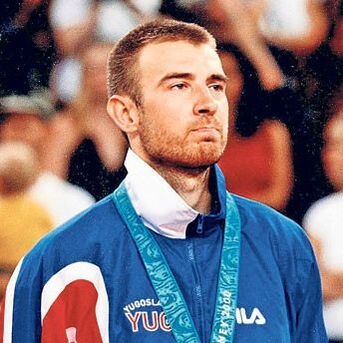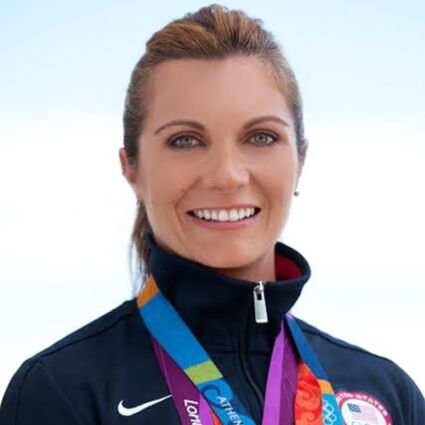BIOGRAPHY
Two pivotal life changes have played an important part in Man-Bok Park being a member of the International Volleyball Hall of Fame Class of 2016.
Born in Sokcho, South Korea in 1936, Man-Bok started playing volleyball in his native land when he was in 11th grade of high school. He would later enroll in Kyung-Hee University, where he studied pharmacy and played on the college volleyball team. But Man-Bok’s vocation plans shifted from a life in medicine to volleyball as the sport became his passion while playing at Kyung-Hee.
After graduating in 1960, volleyball took a lower priority as he entered the Korean army where he served as a sergeant from 1960 to 1964. While in the army, he married his wife, Duck Soon Lee. Once his military commitment was over, volleyball came back to the forefront. Man-Bok coached the Soong Eui Women’s College team from 1965 to 1968 and became one of the most respected coaches in the Korean V-League, leading Korean Air from 1969 to 1972.
Man-Bok transitioned to coaching the Korean Women’s National Volleyball Team in 1973 and quickly made his presence known. At the 1973 FIVB World Cup in Uruguay, he guided Korea to the bronze medal.
Shortly after Korea’s success in the 1973 World Cup, Man-Bok faced his second pivotal volleyball decision that would impact the rest of his life. He was offered a position to lead the Peruvian Women’s National Team, which would uproot his family from Korea with a move half-way around the globe and immersing him into a different language and culture. After careful consideration, Man-Bok jumped at the chance for this challenge.
In his first season, Man-Bok led Peru to an eighth-place finish in the 1974 FIVB World Championship and ended the 1976 Olympic Games in seventh place. The squad would win gold at the South American Championship in 1977 and 1979 – the first two of seven titles and 11 total medals in the event under Man-Bok as he continued to build the program. In between the 1977 and 1979 South American titles, Peru finished 10th at the FIVB World Championship in the former Soviet Union. Peru placed sixth at the 1980 Olympics, and the program deservedly began to draw attention.
Peru hosted the 1982 FIVB World Championship and nearly pulled off its first major tournament title before finishing second to China in front of the home fans. At that point, Peru solidified itself as one of the top teams in the world throughout the 1980s. Although the Peruvians took a slight step back finishing fourth at the 1984 Olympic Games and fifth at the 1985 FIVB World Cup, they came back to finish third at the 1986 World Championship in the former Czechoslovakia.
After finishing second in the 1987 Pan American Games, Peru arrived in Seoul as a contender for the 1988 Olympic Games gold. The Peruvians defeated China in a thrilling five-set semifinal, setting up an exciting final pitting the upstart Peru squad against then-USSR, a powerhouse which had won gold three times and silver twice in the first five Olympic Games. Peru won the first two sets against the USSR, but could not close the match in a five-set thriller that is so of often named one of the greatest matches in women’s volleyball history.
After leading the Peru volleyball team through the 1992 season, Man-Bok took over as the head coach of Ito Yokado in the Japan V-League and held that position until 1998. At that time, he returned to coaching the Peruvian squad from 1999-2001 – including the 1999 FIVB World Cup and the 2000 Olympic Games. Since 2002, Man-Bok has served in an advisory role to the Peruvian Volleyball Federation.
All told, Man-Bok led Peru in five Olympic Games including 1976, 1980, 1984, 1988, 2000. He led Peru to five FIVB World Championship appearances including 1974, 1978, 1982, 1986, 1990 with two medals, along with four FIVB World Cup appearances in 1985, 1989, 1991, 1999.
Man-Bok coached Peru legendary players such as International Volleyball Hall of Fame inductees Cecilia Tait and Gabriela Perez del Solar. He has been recognized for his accomplishments with several medals presented by both his native home of Korea and his adoptive home of Peru, where he continues to live.
For his guidance and tutelage in leading a generation of Peruvian volleyball players to success, we are proud to induct Man-Bok Park into the International Volleyball Hall of Fame as a coach.
Born in Sokcho, South Korea in 1936, Man-Bok started playing volleyball in his native land when he was in 11th grade of high school. He would later enroll in Kyung-Hee University, where he studied pharmacy and played on the college volleyball team. But Man-Bok’s vocation plans shifted from a life in medicine to volleyball as the sport became his passion while playing at Kyung-Hee.
After graduating in 1960, volleyball took a lower priority as he entered the Korean army where he served as a sergeant from 1960 to 1964. While in the army, he married his wife, Duck Soon Lee. Once his military commitment was over, volleyball came back to the forefront. Man-Bok coached the Soong Eui Women’s College team from 1965 to 1968 and became one of the most respected coaches in the Korean V-League, leading Korean Air from 1969 to 1972.
Man-Bok transitioned to coaching the Korean Women’s National Volleyball Team in 1973 and quickly made his presence known. At the 1973 FIVB World Cup in Uruguay, he guided Korea to the bronze medal.
Shortly after Korea’s success in the 1973 World Cup, Man-Bok faced his second pivotal volleyball decision that would impact the rest of his life. He was offered a position to lead the Peruvian Women’s National Team, which would uproot his family from Korea with a move half-way around the globe and immersing him into a different language and culture. After careful consideration, Man-Bok jumped at the chance for this challenge.
In his first season, Man-Bok led Peru to an eighth-place finish in the 1974 FIVB World Championship and ended the 1976 Olympic Games in seventh place. The squad would win gold at the South American Championship in 1977 and 1979 – the first two of seven titles and 11 total medals in the event under Man-Bok as he continued to build the program. In between the 1977 and 1979 South American titles, Peru finished 10th at the FIVB World Championship in the former Soviet Union. Peru placed sixth at the 1980 Olympics, and the program deservedly began to draw attention.
Peru hosted the 1982 FIVB World Championship and nearly pulled off its first major tournament title before finishing second to China in front of the home fans. At that point, Peru solidified itself as one of the top teams in the world throughout the 1980s. Although the Peruvians took a slight step back finishing fourth at the 1984 Olympic Games and fifth at the 1985 FIVB World Cup, they came back to finish third at the 1986 World Championship in the former Czechoslovakia.
After finishing second in the 1987 Pan American Games, Peru arrived in Seoul as a contender for the 1988 Olympic Games gold. The Peruvians defeated China in a thrilling five-set semifinal, setting up an exciting final pitting the upstart Peru squad against then-USSR, a powerhouse which had won gold three times and silver twice in the first five Olympic Games. Peru won the first two sets against the USSR, but could not close the match in a five-set thriller that is so of often named one of the greatest matches in women’s volleyball history.
After leading the Peru volleyball team through the 1992 season, Man-Bok took over as the head coach of Ito Yokado in the Japan V-League and held that position until 1998. At that time, he returned to coaching the Peruvian squad from 1999-2001 – including the 1999 FIVB World Cup and the 2000 Olympic Games. Since 2002, Man-Bok has served in an advisory role to the Peruvian Volleyball Federation.
All told, Man-Bok led Peru in five Olympic Games including 1976, 1980, 1984, 1988, 2000. He led Peru to five FIVB World Championship appearances including 1974, 1978, 1982, 1986, 1990 with two medals, along with four FIVB World Cup appearances in 1985, 1989, 1991, 1999.
Man-Bok coached Peru legendary players such as International Volleyball Hall of Fame inductees Cecilia Tait and Gabriela Perez del Solar. He has been recognized for his accomplishments with several medals presented by both his native home of Korea and his adoptive home of Peru, where he continues to live.
For his guidance and tutelage in leading a generation of Peruvian volleyball players to success, we are proud to induct Man-Bok Park into the International Volleyball Hall of Fame as a coach.
|
|
|
|
CLASS OF 2016
|
|
|
|
|




